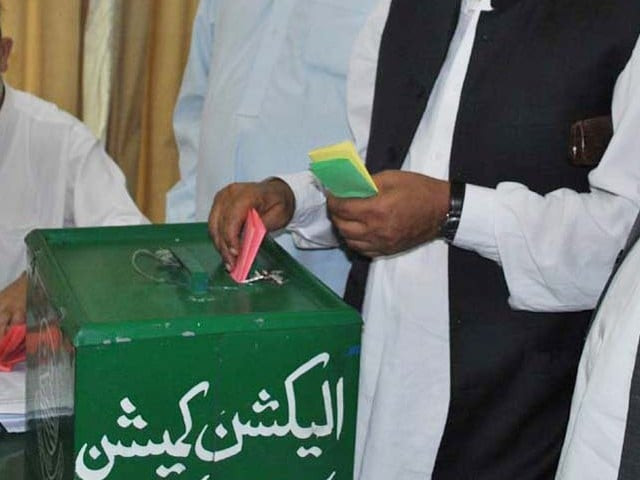Pakistan hurtles towards 2012 polls
Analysts say 2012 is the election year.

The power struggle between Asif Ali Zardari's government on the one hand and the courts and military on the other is by any standards toxic – even in a nuclear-armed country as perennially on the brink of crisis as Pakistan.
No elected government in the history of the country has survived a full term in office and almost from inception the daggers have been drawn for the Pakistan Peoples Party administration.
Yet Zardari has survived nearly four years through nous and cunning. Polls in 2012 may satisfy an army desperate to see the back of Zardari but his prime minister has already become the longest-serving civilian premier in Pakistan.
"2012 is election year," says political analyst and author Imtiaz Gul, regardless of whether Prime Minister Yousaf Raza Gilani survives contempt proceedings initiated by the Supreme Court.
"All political parties want early elections," said Gul.
"There is economic crisis and social instability and the government will therefore see early elections as the only way out."
The Supreme Court judges demanding that Zardari be reinvestigated for graft in Switzerland could ultimately decide to convict Gilani of contempt, sentence him to jail and disqualify him – as well as Zardari – from office.
The president is also under pressure from a judicial investigation into a secretive memo seeking to overhaul the military leadership after the army was humiliated by a covert American operation on May 2 that killed Osama bin Laden.
But the court's decision to adjourn until February 1 has bought the government at least two weeks' reprieve after Gilani was summoned to face contempt charges on Thursday.
Opinion is divided on whether the Supreme Court was victorious in forcing the government to accept its authority or whether the prime minister emerged triumphant by standing his ground and refusing to apologise.
Gilani faced down a demand to ask Swiss authorities to reopen corruption cases against Zardari by insisting that the president has full immunity, but the prime minister has gone out of his way to show deference to the courts.
"We respect the judiciary and their mandate and we will respect whatever courts decide in this regard," Gilani told reporters on Friday.
"The crisis has been averted – for now," said Pakistan's well-regarded English broadsheet Dawn.
"Both Zardari and Gilani have kept their nerve," Ayaz Amir, a lawmaker for the opposition Pakistan Muslim League-N party, wrote in The News, before comparing Zardari favourably to much-lauded prime minister Zulfikar Ali Bhutto.
"Zardari... is a far better politician than him. Bhutto had a knack for making enemies. Zardari has a knack for making friends and keeping them on his side," Amir wrote.
Analysts are divided on whether the court will accept the government's position on immunity, force its hand or whether a compromise can be reached in the wording of a letter written to the Swiss authorities.
Most believe a solution can be found, saving Gilani the ignominy of being convicted for contempt.
Pakistan has been under military dictatorships for about half its history since independence in 1947, with civilian leaders thrown out in three coups.
But while the military – angry with government ineptitude and still reeling from the Bin Laden fiasco – appears to have decided Zardari has to go, observers say there is no suggestion of another coup in the offing.
Instead the powerful military seems content to engineer elections by building pressure on the government from behind the scenes and watch the rise of political contender Imran Khan, rumoured to be the army's choice.
What remains to be seen is how long the government can survive, under what circumstances and when it will be finally forced to call elections which are not due until the beginning of 2013.
Few believe the Supreme Court, government or military want elections before April's expected completion of electoral roll reform that offers the prospect of significantly cleaner polls.
Pakistan's blazing summer starts early and elections have never been held during the hottest months, making September or October the most likely date.
Analyst AH Nayyar said the government was determined to survive until Senate elections in March in a bid to retain its majority and hold out for as long as possible.
But regardless of elections, there is little doubt that the current government is paralysed, offering nothing in the face of crippling energy cuts and inflation, not to mention the damaged US alliance in Afghanistan.
"We are already in the middle of a coup as the government is not being allowed to function," said military analyst Ayesha Siddiqa.
"I call it a judiciary-cum-media coup."



















COMMENTS
Comments are moderated and generally will be posted if they are on-topic and not abusive.
For more information, please see our Comments FAQ